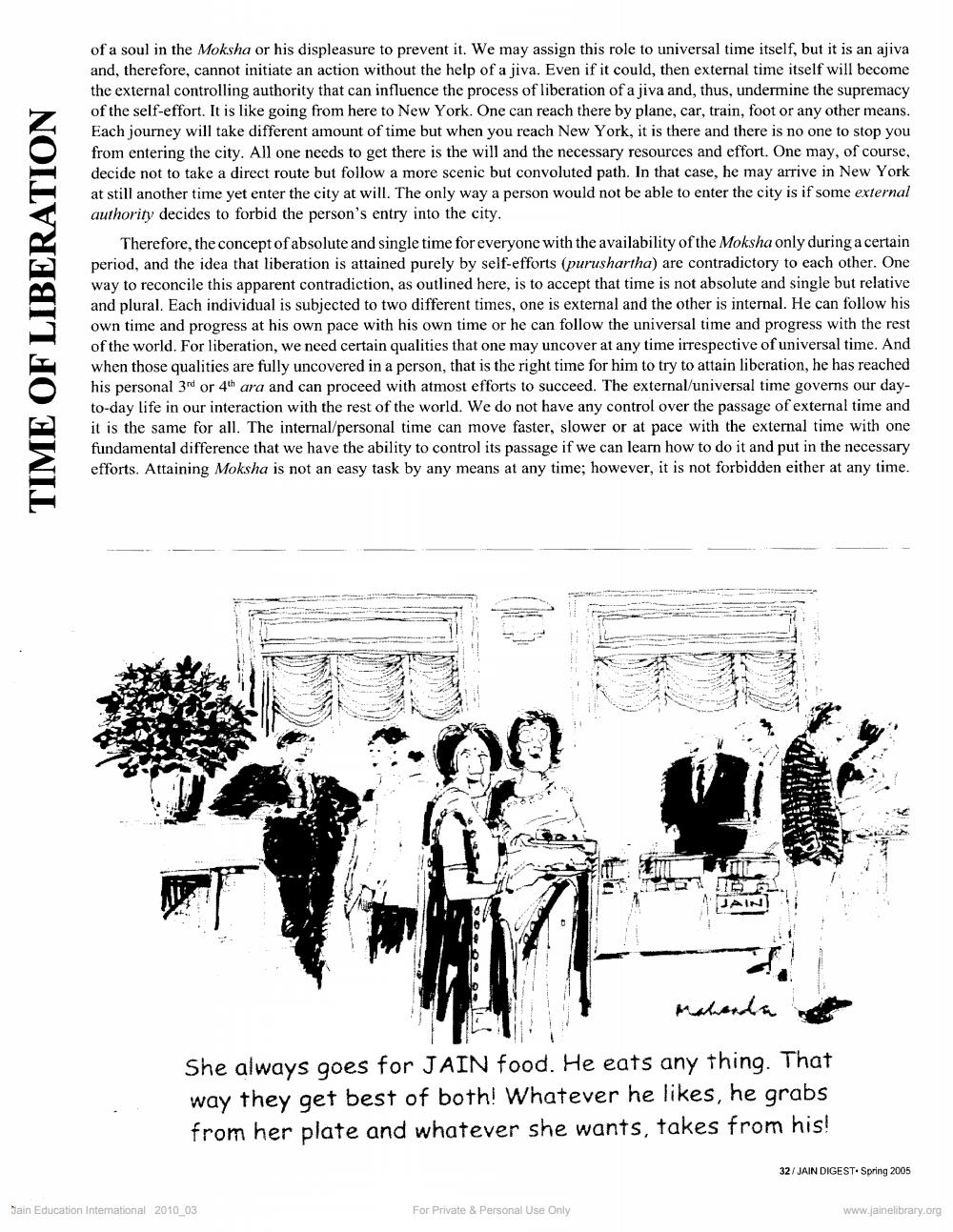________________
TIME OF LIBERATION
of a soul in the Moksha or his displeasure to prevent it. We may assign this role to universal time itself, but it is an ajiva and, therefore, cannot initiate an action without the help of a jiva. Even if it could, then external time itself will become the external controlling authority that can influence the process of liberation of a jiva and, thus, undermine the supremacy of the self-effort. It is like going from here to New York. One can reach there by plane, car, train, foot or any other means. Each journey will take different amount of time but when you reach New York, it is there and there is no one to stop you from entering the city. All one needs to get there is the will and the necessary resources and effort. One may, of course, decide not to take a direct route but follow a more scenic but convoluted path. In that case, he may arrive in New York at still another time yet enter the city at will. The only way a person would not be able to enter the city is if some external authority decides to forbid the person's entry into the city.
Therefore, the concept of absolute and single time for everyone with the availability of the Moksha only during a certain period, and the idea that liberation is attained purely by self-efforts (purushartha) are contradictory to each other. One way to reconcile this apparent contradiction, as outlined here, is to accept that time is not absolute and single but relative and plural. Each individual is subjected to two different times, one is external and the other is internal. He can follow his own time and progress at his own pace with his own time or he can follow the universal time and progress with the rest of the world. For liberation, we need certain qualities that one may uncover at any time irrespective of universal time. And when those qualities are fully uncovered in a person, that is the right time for him to try to attain liberation, he has reached his personal 3rd or 4th ara and can proceed with atmost efforts to succeed. The external/universal time governs our dayto-day life in our interaction with the rest of the world. We do not have any control over the passage of external time and it is the same for all. The internal/personal time can move faster, slower or at pace with the external time with one fundamental difference that we have the ability to control its passage if we can learn how to do it and put in the necessary efforts. Attaining Moksha is not an easy task by any means at any time; however, it is not forbidden either at any time.
She always goes for JAIN food. He eats any thing. That way they get best of both! Whatever he likes, he grabs from her plate and whatever she wants, takes from his!
32/JAIN DIGEST. Spring 2005
Gain Education International 2010_03
For Private & Personal Use Only
www.jainelibrary.org




